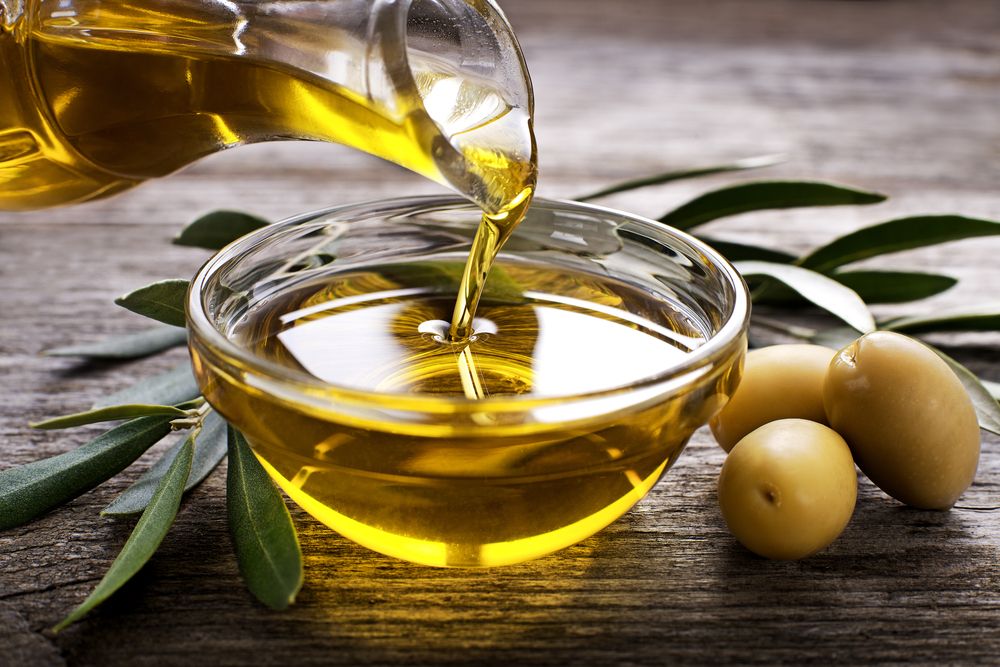
When selecting a healthy oil for your kitchen, avocado oil and olive oil frequently top the list. Both are packed with heart-healthy fats and provide numerous health benefits, making them favorites among health-conscious individuals.
While both oils are versatile in the kitchen, they do have notable differences. Whether you're using them as a salad dressing or for high-heat cooking like stir-frying, knowing the distinctions between these two oils can help you make better-informed choices.
So, is one oil healthier when comparing avocado oil to olive oil? To help you decide which one is best for your needs, let’s dive into their origins, nutritional profiles, health benefits, and culinary uses.
Origins and Production
Though their origins differ, the production process for both avocado and olive oils is quite similar, especially when dealing with virgin (unrefined) oils.
Avocado Oil Production
Avocado oil is extracted from the flesh of ripe avocados. The process involves pressing the fruit to release the oil. Once the flesh is turned into a paste, it is slowly mixed to aid in oil separation, a process that typically takes 40 to 60 minutes at temperatures between 110 and 120 degrees Fahrenheit. Although this temperature is higher than that used for olive oil extraction, it still qualifies as cold-pressing.
After extraction, the oil can either be refined or left in its natural state. Unrefined or extra virgin avocado oil has a deep green hue and a rich, buttery flavor. However, oil from lower-quality fruits often undergoes refining to remove unwanted colors and odors. Refined avocado oil has a lighter yellow color and a more neutral flavor.
Olive Oil Production
On the other hand, olive oil is derived from the flesh of olives, following a similar pressing process. Like avocado oil, olive oil can be either refined or unrefined. Extra virgin olive oil is the least processed variety, known for its strong, peppery flavor and its abundance of beneficial compounds such as polyphenols.
Refined olive oils, which undergo further processing, have a milder taste and lighter color. These oils also possess a higher smoke point, making them more suitable for high-heat cooking. Olive oil is usually packaged in dark containers to prevent light from degrading its quality.
Nutritional Comparison
In terms of nutritional content, both avocado oil and olive oil share many similarities.
Avocado Oil
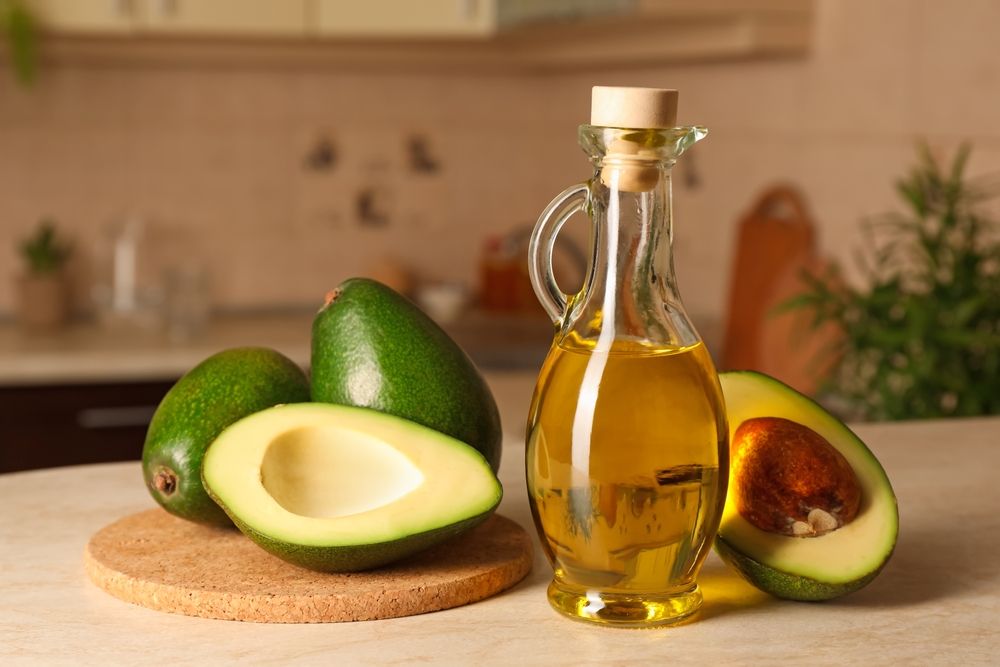
Nutritional Information (Per 1 tbsp):
- Calories: 124
- Total Fat: 14 g
- Saturated Fat: 1.6 g
- Unsaturated Fat: 11.8 g
- Monounsaturated Fat: 9.9 g
- Polyunsaturated Fat: 1.9 g
- Vitamin E: 2.9 mg
Avocado oil is a great source of monounsaturated fats, particularly oleic acid. It also provides a higher amount of vitamin E, offering about one extra gram per tablespoon compared to olive oil. Although avocado oil has slightly more calories and fat than olive oil, it contains a bit less saturated fat.
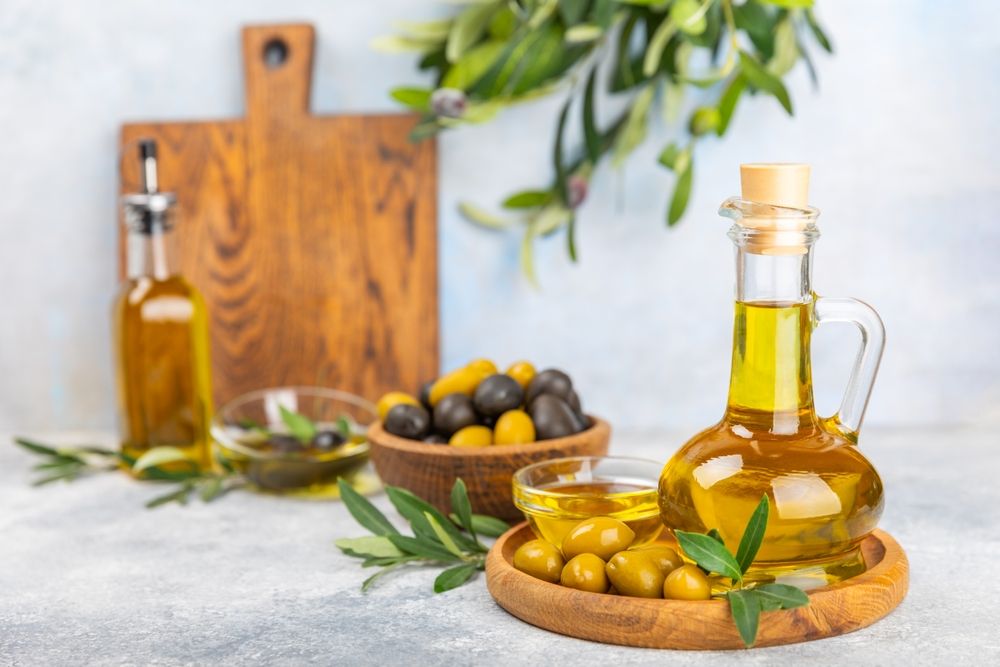
Nutritional Information (Per 1 tbsp):
- Calories: 119
- Total Fat: 13.5 g
- Saturated Fat: 1.9 g
- Unsaturated Fat: 11.3 g
- Monounsaturated Fat: 9.9 g
- Polyunsaturated Fat: 1.4 g
- Vitamin E: 1.9 mg
Olive oil is rich in monounsaturated fats, containing about 70% to 80% oleic acid, similar to avocado oil. It is also a valuable source of antioxidants, including polyphenols and vitamin E, which contribute to its many health benefits.
Health Benefits
Avocado oil and olive oil share similar health benefits due to their high content of monounsaturated fats, antioxidants, and vitamin E.
A study of over 93,000 people found that those who ate monounsaturated fats from plant foods like olive oil and avocados had lower rates of death from cancer and heart disease.
Avocado Oil Benefits
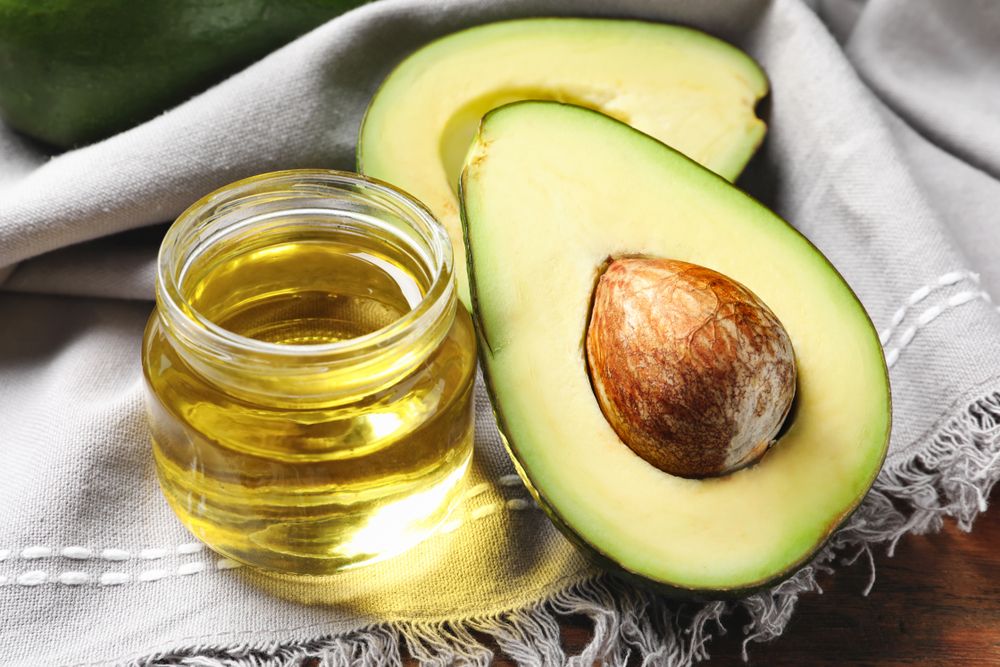
Monounsaturated fats, such as oleic acid found in avocado oil, are associated with various heart health benefits, including the reduction of LDL (bad) cholesterol levels.
In a small study involving 13 participants, individuals consumed a high-fat, high-calorie meal that included either butter or avocado oil. After the meal, researchers measured several blood markers and found that those who consumed avocado oil had significantly lower levels of triglycerides (a type of fat in the blood), total cholesterol, LDL cholesterol, inflammatory markers, and blood sugar compared to those who consumed butter.
Avocado oil’s higher vitamin E content may also promote skin health. In an older study with 13 individuals suffering from chronic plaque psoriasis, a cream containing avocado oil and vitamin B12 was found effective for long-term psoriasis treatment. However, it's unclear whether the benefits came solely from the avocado oil or from its combination with vitamin B12. More research is needed to determine whether consuming avocado oil offers similar skin benefits as applying it topically.
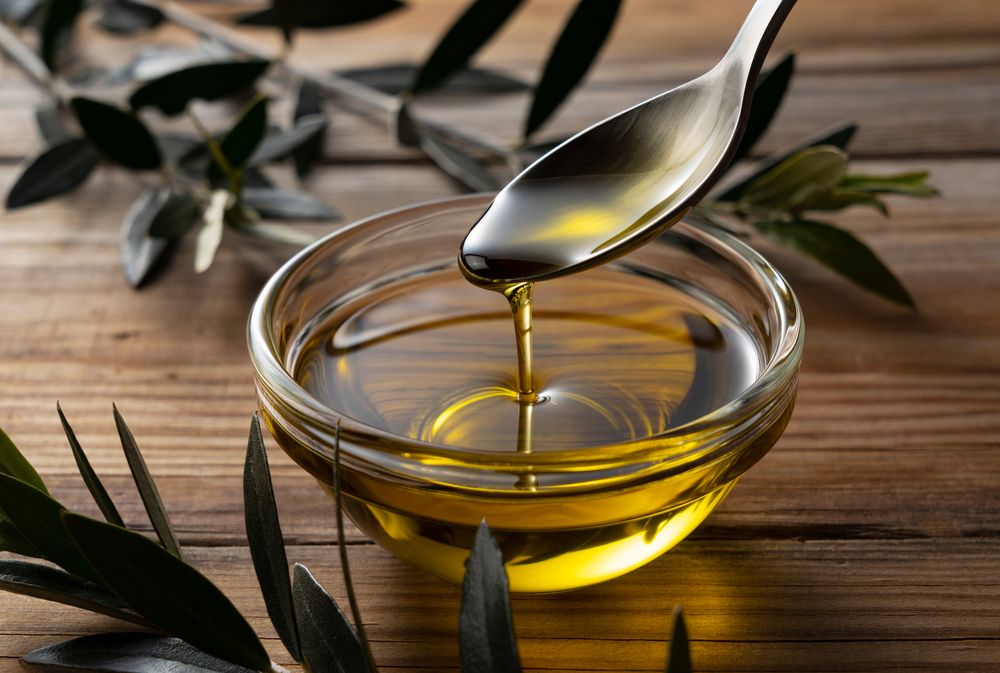
A key component of the Mediterranean diet, olive oil is rich in anti-inflammatory polyphenols, which may lower the risk of chronic conditions such as heart disease and cancer. These polyphenols may also offer protection against neurodegenerative diseases and osteoporosis.
A systematic review and meta-analysis on olive oil consumption and chronic disease revealed the following findings:
- A 16% reduction in heart disease risk for every 25 grams of olive oil consumed daily.
- A 22% lower relative risk of type 2 diabetes for every 25 grams of daily olive oil intake.
- An inverse relationship between olive oil consumption and mortality from any cause, meaning that higher olive oil consumption was linked to a lower risk of death.
Additionally, research suggests that consuming olive oil may boost brain function and help guard against cognitive decline.
Are There Any Risks?
While both avocado oil and olive oil are generally safe to consume, a few safety considerations are worth noting.
Avocado Oil Health Considerations
Avocado oil is considered safe for most people, but those with avocado allergies should avoid it. A 2020 study revealed concerns about the quality and purity of many store-bought avocado oils, with several samples found to be oxidized (spoiled) due to improper storage, using damaged avocados, or poor processing methods. Choosing extra-virgin avocado oil, which adheres to higher quality standards, is a good way to ensure a better product.
Olive Oil Health Considerations
Similarly, olive oil is safe but can degrade, especially extra-virgin varieties, when exposed to high heat or light for prolonged periods. To maintain its quality, it's best to purchase olive oil in dark glass containers, which protect it from light. Store it in a cool, dark place to prevent spoilage.
Some olive oils on the market may be adulterated with cheaper oils like sunflower or soybean oil. To avoid this, look for seals such as Protected Designation of Origin (PDO) or Protected Geographical Identification (PGI), which signify high-quality production standards.
Taste & Cooking Properties

One significant difference between avocado oil and olive oil is their smoke point. The smoke point is the temperature at which an oil begins to break down, producing compounds that can change its flavor and potentially harm health.
Cooking with Avocado Oil
Avocado oil has a rich, buttery flavor that works well in salad dressings or as a finishing oil. Its high smoke point (over 480°F) makes it an excellent choice for grilling, roasting, and other high-heat cooking methods.
Cooking with Olive Oil
Extra virgin olive oil has a fruity, peppery taste that can elevate cold dishes such as salads and dips. With a smoke point around 400°F, it's less suited for high-heat cooking but perfect for lower-heat methods like sautéing.
Is One Oil Healthier Than the Other?
When comparing avocado oil and olive oil, it's important to note that both are packed with heart-healthy fats and offer various health benefits. Avocado oil is slightly higher in calories and vitamin E, and its higher smoke point makes it better for high-heat cooking. Its robust, buttery flavor also complements dressings and finishing touches.
Olive oil, especially extra virgin, is rich in anti-inflammatory polyphenols and a cornerstone of the Mediterranean diet. It is associated with a reduced risk of heart disease, type 2 diabetes, and cognitive decline. With its lower smoke point, it's best used for cold dishes or low- to medium-heat cooking.
Ultimately, both oils are excellent choices for quality and health benefits. Avocado oil shines in high-heat cooking, while olive oil is ideal for enhancing the flavor and nutritional value of cold dishes and lower-heat cooking methods.

